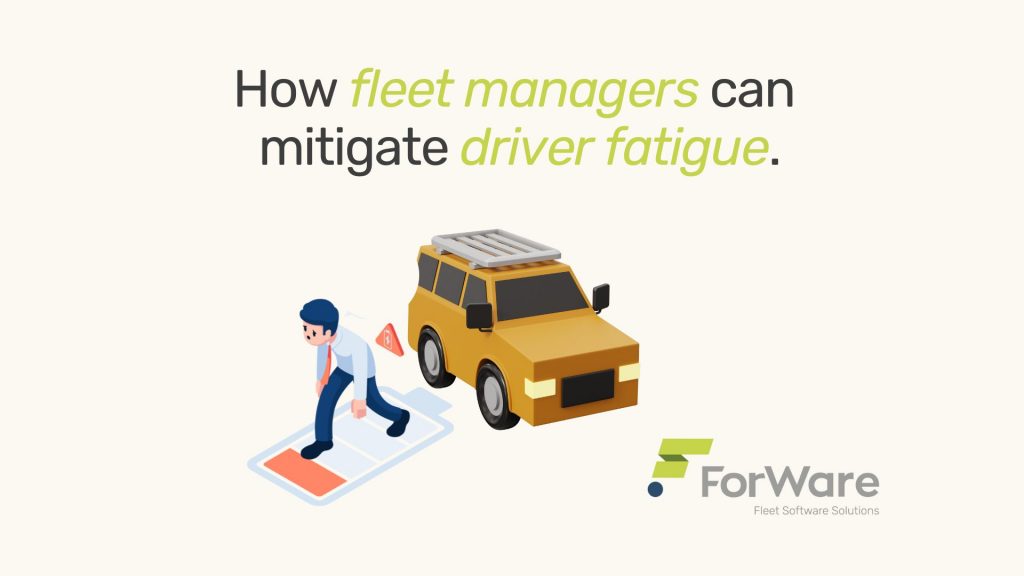Menu

March 18, 2025
World Sleep Day is held every March, an event which promotes sleep health. Good sleep health is important for anyone involved with driving vehicles, and not something to be underestimated. In Ireland, the RSA suggests that driver fatigue is a contributory factor to 20% of fatal crashes every year. RSA stats reveal that 28% of people have nodded off (even momentarily) while driving, with this figure being 33% for those who drive to work. These are all frightening figures, which every fleet manager should be wary of. We’ve talked before about how a good fleet management system places emphasis on vehicle safety, but human factors should never be overlooked; in this article, we shall take a look at how fleet managers can mitigate the risk of driver fatigue.
Fleet managers should make sure that drivers are aware of the importance of adequate rest before getting behind the wheel. For instance, if you are the manager of a fleet of vans, you should make sure that all new drivers are advised of the importance of rest as part of the induction process, working with your HR department if needed. Maintaining this culture of safety is just as important, for example, dashboards of company vehicles could be affixed with stickers reminding the drivers of the consequences of driver fatigue. It should also be emphasised at any employee safety briefings that may take place throughout the year. You can have the safest cars or vans on the planet, but if your drivers are heading out without rest then you’re set up for disaster.
Productivity is important to any business, but it should never be at the expense of safety. When planning duties and routes, managers should ensure that the journey can be accomplished without having the driver(s) behind the wheel for too long without a break. This also applies to rest breaks between driving. If necessary, relief drivers should be factored in.
Inclement weather and even local events can cause chaos for traffic, and what should be a quick driver can quickly escalate into a multi-hour ordeal. If such scenarios drivers should be encouraged to take breaks when practical and not to turn back immediately on reaching their destination if it means they are driving in excess of what is considered safe.
In Ireland, driver rest requirements are set out by Regulation (EC) No 561/2006. This stipulates:
We hope that this article has given you some insight as to how fleet managers can mitigate the risk of driver fatigue, and why it is necessary. Of course, having a well-maintained, compliant fleet is also crucial to maintaining safety, but human factors should never be overlooked.

Alan Maher
Alan is a positive and proactive automotive professional with over 25 years of extensive experience in the motor trade.
Alan has been vital in developing and driving the ForWare System and implementing core workshop processes with some of the most significant state and private fleets in Ireland, the UK and Europe.
Schedule a FREE consultation today to see how we can make life easier for all involved—you, your colleagues, your customers and your fleet.
By subscribing, you’ll always be the first to know about the latest articles, freebies and special offers from ForWare. So go ahead and sign up now!